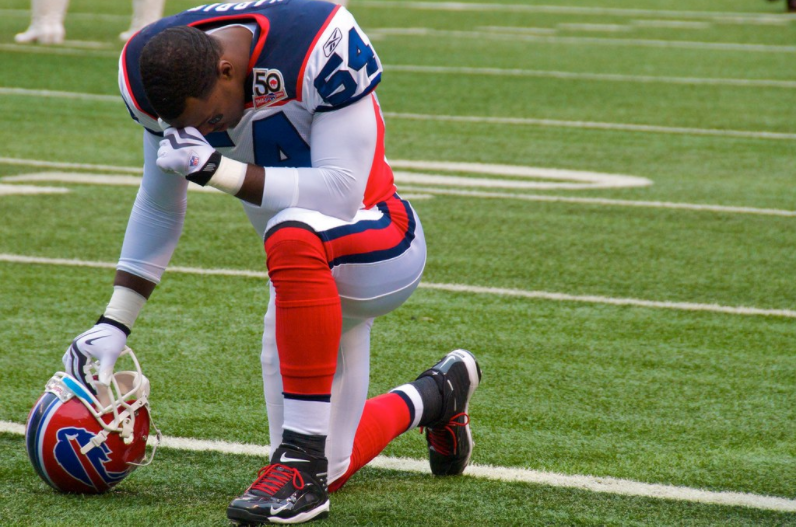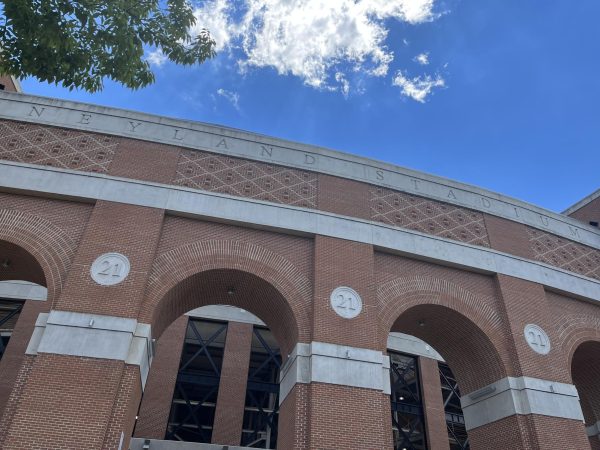Athletes take a stand
The history of protests and activism in sports dates back all the way to Constantinople chariot races in 532 A.D., when two drivers from rival teams refused to race each other.
Today, activism in sports looks a little different. Players can be seen taking a knee during the national anthem, raising their fists while bowing their heads, and wearing apparel and shoes with the phrase “Black Lives Matter”. Modern athletes have been moved to protest to demonstrate that they are citizens of conscience.
“I think sports activism has improved over the years because athletes are starting to stand against injustices that would’ve once been ignored years ago,” junior Embre Martin said.
This past summer saw an unprecedented wave of teams protesting against America’s racial injustice. The Milwaukee Bucks refused to take the court for an Aug. 26 playoff game to protest the police shooting of Jacob Blake. As a result, the NBA postponed all three games that night, and the WNBA, MLB and MLS postponed many games as well.
“Despite the overwhelming plea for change, there has been no action, so our focus today cannot be on basketball,” said The Bucks organization.
Athletes recognize they have a platform, especially on social media, to advocate for societal issues. Many athletes have chosen to take their activism to Twitter because of its ability to get a short but strong message out to a large audience quickly.
“I think more athletes are participating in activism this year because there have been many events such as the deaths of George Floyd and Breonna Taylor that have sparked outrage across the nation. Athletes have now realized the platform they have now to make change,” Martin said.
Four years ago, former San Francisco 49ers’ quarterback Colin Kaepernick sent a message about police brutality and social injustice by refusing to stand for the national anthem before NFL games. Since then players from various teams have joined Kaepernick in this form of protest, generating controversy and sparking a public conversation about the protesters’ messages and how they have chosen to deliver them.
“I believe this form of protest is effective as far as everybody knowing about it and this act is becoming a nationwide thing but it isn’t making a difference. You could even say it is doing more bad than good because of all the ways message can be interpreted,” junior Jaxton Culbreth said.
Sports are a powerful institution and a good way to promote social change and relatively universal- they can reach across the nation and world. The sports industry has a wide catchment area. Therefore, a great way of communicating with the masses is through sports. Athletes that are in the public eye are encouraged by their organization to participate in forms of activism.
“I think it is important for anyone to participate in activism. Having big names participating in activism can possibly persuade others to do the same,” junior Sloan Hatter said.
In the past sports have been an escape for some people, especially from politics. As social unrest rose, athletes’ voices shifted to being more amplified.
“It probably would be better if politics and sports stayed separate, but the athletes have freedom of speech and if they choose to participate, then they can,” Culbreth said.
Over the summer, sports leagues and team owners have become more accepting of their athletes participating in forms of protest and want to continue the legacy of sports activism. In June, the NFL contrasted its past resentment toward Kaepernick by endorsing the Black Lives Matter movement and committing $250M over a 10-year period to help combat systemic racism.
“Sports institutions have become more accepting toward activism today because people are starting to realize that staying quiet about important topics is not the way to go. We should all be using our voices to bring light to things we think are important and I think more and more people are starting to understand that,” Hatter said.

KENDALL WEAVER is a senior in her third year of journalism and one of the EDITORs-in-CHIEF for the SPARTAN SHIELD. Some of her favorite things...



Bubba • Mar 14, 2021 at 9:02 am
Good article